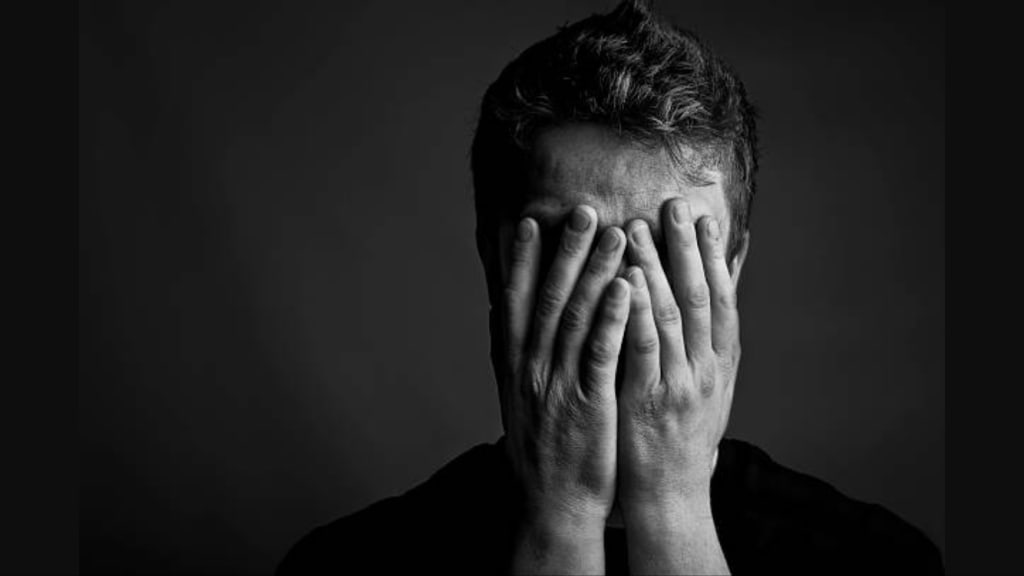What is Borderline Personality Disorder?
The Rollercoaster That We Ride Continuously

Borderline Personality Disorder, also known as Emotionally Unstable Personality Disorder, is a mental health condition that is normally greeted with responses such as "What is that" or "My god, they're a train wreck."
The first one, I can answer pretty simply for you. BPD is a mental illness which essentially causes nine main symptoms, of which five need to be met in order to receive a diagnosis:
- Frantic Efforts to Avoid Real or Imagined Abandonment — We believe everyone is either trying to get away from us, or will want to eventually. We push people away before they get the chance to leave themselves, but we also desperately try to prevent them from leaving. This could be physically clinging onto them, ringing them in the middle of the night, or repeated texts. Sometimes, it can be as simple as asking someone not to leave.
- Impulsivity in at Least Two Areas Which Could Be Potentially Self-Damaging — This includes binge eating or eating disorders, gambling, promiscuity, unsafe driving, or substance abuse. We use these things as a method of coping and can easily get addicted.
- Self-Mutilating or Suicidal Behaviours — Please don't confuse the two. Self-harm is used as a method of trying to release some of the emotional pain. Around 70 percent of those with BPD will attempt suicide at some point, and around 10 percent will be successful. Please take any threats of suicide seriously, even if we have threatened before and not carried it out.
- Uncontrollable Anger — This does not necessarily mean violent or aggressive. We feel a lot of anger towards other people for not meeting our expectations, but we also feel a lot of anger towards ourselves. There are different types of borderlines and the "quiet" borderline will very rarely act out, and so this anger is directed and taken out on themselves.
- A Pattern of Intense and Unstable Relationships — This is often caused by "splitting." Splitting is when we switch between idolising someone and thinking they're the best person ever, to thinking they are the worst and that the relationship is doomed. We often love our partners (maybe too) intensely, but as a result of all these symptoms it can be rocky and often difficult to make last. With patience and the right support, however, it is possible to have a long term and healthy relationship with a borderline.
- Chronic Feelings of Emptiness — We often feel very lonely and isolated and as a result just feel empty inside. These are the times where we can feel numb, and feel like we are completely on our own in the world with nothing good happening in our lives.
- Intense Moods That Can Change Suddenly and Last From Minutes to Days — We could be super happy and loving what we're doing but all of a sudden we could feel overwhelmingly depressed. There is usually an extrinsic trigger, something someone had said or done, but we cannot control these switches and often don't know why they have happened. They could go as quickly as they came, or they could stick with us for the next 48 hours. This works with every emotion.
- Unstable Sense of Self — This means we often change or don't know who we are as a person. This could be as simple as changing our clothing style or hair colour, or we could change our career goals, job, friends, or location.
- Severe Dissociative Symptoms or Paranoia — We sometimes have symptoms which means we don't feel in control of our own body. Sometimes we may hear or see things that aren't really there. Other times we get super paranoid that someone is going to hurt us. Please note this is the more severe end of the spectrum, and sufferers are less likely to experience this symptom than the others.
Basically, we have no emotional skin. We have nothing to protect us from emotional pain, and what may cause someone without BPD no grief at all could be emotional agony for us. We cannot manage our emotions, nor keep them stable.
As for being a train-wreck — not quite. We may feel all these emotions, but more often than not, other people won't pick up on them because we have learnt to just suffer internally. With the right support, it is possible to recover from BPD and have a happy, balanced life.
If this article has made you worry about yourself or someone you know, please contact a doctor or psychiatric health professional as soon as you can.
About the Creator
Shaye Goodenough
I want to improve people's knowledge and awareness of mental health. I love good food, good company and good music. I'm into anime, movies, gaming, singing, poetry and baking.






Comments
There are no comments for this story
Be the first to respond and start the conversation.